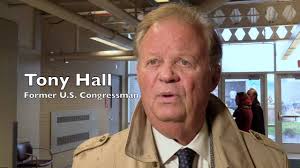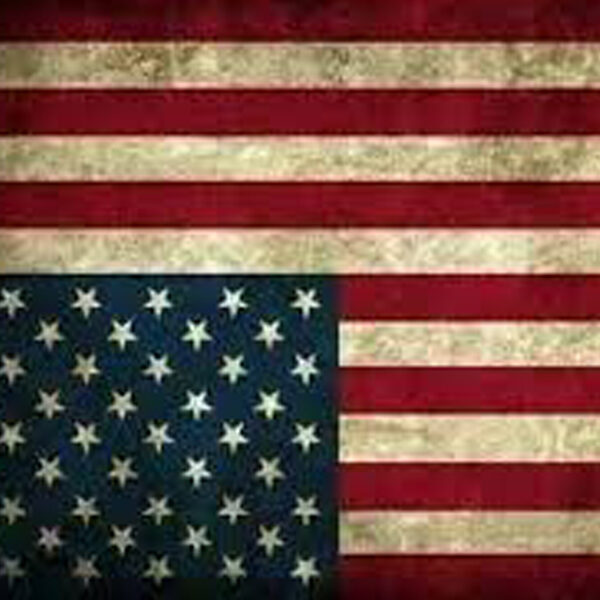See HR# 96 of 1997 See HR# 356 2000
RESOLUTION APOLOGIZING FOR SLAVERY — HON. TONY P. HALL
(Extensions of Remarks – July 13, 2000) [Page: E1223]
HON. TONY P. HALL (OHIO)

IN THE HOUSE OF REPRESENTATIVES
Wednesday, July 12, 2000
- Mr. HALL of Ohio. Mr. Speaker, I include the following remarks for the RECORD.
INTRODUCTION
- In 1865, Alexis de Tocqueville wrote, “When they have abolished slavery, the moderns still have to eradicate a much more intangible and tenacious prejudice–the prejudice of race. Differences [between races] have lasted for centuries, and they still subsist in very many places; everywhere they have left traces which, though imaginary, time is hardly able to obliterate. I see slavery is in retreat, but the prejudice from which it arose is immovable.”
- Those words, written over a century ago, unfortunately still ring true today.
WHY I INTRODUCED THE APOLOGY
- A few years ago, I saw a television program with a black minister and a white minister commemorating Dr. Martin Luther King’s birthday. They mentioned that there had never been an official apology for slavery. With the Civil War, with all that President Abraham Lincoln achieved, and with the Civil Rights Movement’s successes, I found that hard to believe.
- So I went to the Library of Congress and discovered that they were right–no one in the Government of the United States had ever apologized for slavery. I set out to correct this glaring omission in history, and in 1997, I introduced my simple resolution 0without much fanfare.
- What happened next was a complete surprise. Debate about my resolution erupted at about the same time President Clinton began his “National Dialogue on Race.” Some dismissed it as “a meaningless gesture” or “an avoidance of problem-solving.”
Some felt, as I still do, that this apology was overdue.
- I received hundreds of letters and phone calls about the apology. Many of the people I heard from opposed the idea and some were outright hateful.
- I know that my resolution will not fix the lingering injustices that were and are slavery’s legacy. But, in any human relationship, reconciliation begins with an apology. I hope the official apology my resolution seeks will be the start of a new healing between the people of our country.
- After taking care of my District, I focus on hunger and human rights. I have seen these problems in communities around our nation and the world, but I am not an expert on issues of race. What I do know, because I have seen it in rich and poor communities alike, is that there are deep divisions in our country’s past and our present.
- My faith leads me to a clear purpose for my life: to love God, and to love others as I would love myself. I know that I would not want my children sold as slaves.
I know that it would tear me apart if my wife was taken from my arms and given to another man.
I know that I would be angry if I was beaten, whipped and killed because of the color of my skin.
I do not want that for my neighbors, whether they live down the street or half a world away.
- Americans have tried to heal our race problems many times before today, but perhaps we can find more lasting solutions if we change our approach.
We have started new programs, invested money, and written countless reports. But, I say with respect, that has not been enough.
We need to acknowledge the past, recognize the present, and hope for the future.
WHY WE STILL NEED TO APOLOGIZE
Personal Reasons
- There are numerous reasons why Congress should apologize for its role in promoting and sustaining slavery.
First, it is the right thing to do. If you offend your spouse or a friend, you have to say you are sorry in order to go forward in your relationship. It is so basic that we teach our kids from an early age–say you are sorry, or you can’t play anymore; apologize, or you have to go to your room.
- These three words–I am sorry–are a foundation for beginning again, a small price to pay for restoring lost trust, and a necessary first step in moving forward constructively.
- Others have said it better.
- An apology would show that my government and president believe the enslavement of Africans for national gain was a grave and revolting wrong.
“It will document in stone for years to come the country’s repentance for a tremendous crime. It is the right thing to do,” a woman wrote to me in 1997.
- “The fact that you want to apologize, says to me personally, that you recognize and accept my pain, the pain of my ancestors, and that you care about it,” another letter said, “….. in my lifetime, no one has done that.”
- A general expression of sorrow is the starting point of any healing process,” a journalist for USA Today said. “Of course, an apology has to be followed by serious acts of contrition, but any attempt at reconciliation that begins without one cannot be taken seriously.”
- I was most heartened by the thoughtful people like Clarence Page of the Chicago Tribune, whose first reaction was “why should we apologize?” but who came, to the conclusion, “why shouldn’t we?”
- This apology will not solve all of the problems, but it will begin new progress on issues that still divide Americans.
It is never too late to admit a wrong and to ask for forgiveness. In giving those our nation wronged the dignity of this honest admission, we might all enjoy some measure of healing. And it will set the right example for our children.
Historical Reasons
- Another reason to apologize for slavery is the historical precedent it will set. There have been many public apologies offered in recent years. In 1988, Congress apologized to Japanese-Americans for imprisoning them during World War II. In 1993, Congress offered a formal apology to native Hawaiians for the role the United States played in overthrowing the Kingdom of Hawaii a century before.
- Other countries have also apologized:
Britain’s Prime Minister apologized to Irish people for failing to help the millions of people who suffered and died during the great potato famine of the 19th century.
East Germany’s legislature issued an apology for the atrocities committed against the Jews during the Holocaust.
Japan’s emperor formally apologized to Korea for its conduct during its colonial period.
- Slavery has been an important focus of recent apologies.
In 1993, Pope John Paul II apologized for the Catholic Church’s support for slavery, and for the violence of the 16th Century Counter Reformation.
In 1994, the State of Florida apologized and paid reparations for its role in the 1923 Rosewood riots.
The same year, the Southern Baptist Convention apologized for its past support of slavery.
In 1999, the United Methodist Church’s West Ohio Conference called for white Methodists to apologize for their ancestors’ role in slavery.
- Unfortunately, America’s history is littered with many examples of missed opportunities to address the “peculiar institution” of slavery.
When our Founding Fathers declared that “all men are created equal,” we could have truly included everyone.
When we established the Constitution as the rule of law for our new country, we could have treated slaves as full and equal, instead of treating them as three-fifths of a person.
When the Supreme Court made its rulings, when our nation amended the Constitution, or when Congress wrote Civil Rights laws–at any of these moments in our history, we could have apologized for slavery.
But we failed, and now we must go back and finish our history’s chapter on slavery.
CONCLUSION
- Last December, at the invitation of Benin’s President, I attended a conference he convened on slavery and reconciliation. As I told the many dignitaries who attended, the tragedy of slavery and the curse that came with it will not simply disappear with time.
All of us live with the legacy of slavery.
Africans’ descendants suffer from the guilt of having sold their brothers and sisters, and the effects of exploitation.
Europeans’ descendants are cursed with a divided society, blind to the fact that our own privilege perpetuates that division, and unaware of the need to repent.
And African-Americans are plagued by the remnants of the institution of slavery and the consequences of bitterness.
- Apologizing is humbling. To admit to a wrong, you expose your wounds and warts for all the world to see.
But the United States is a great country, and it should be big enough to admit its mistakes.
And it should be wise enough to do whatever is necessary to heal its divisions. I believe this apology is faithful to our past, and essential to our future.

Does your site have a contact page? I’m having a tough time locating it but, I’d like to send you an e-mail. I’ve got some suggestions for your blog you might be interested in hearing. Either way, great site and I look forward to seeing it expand over time.